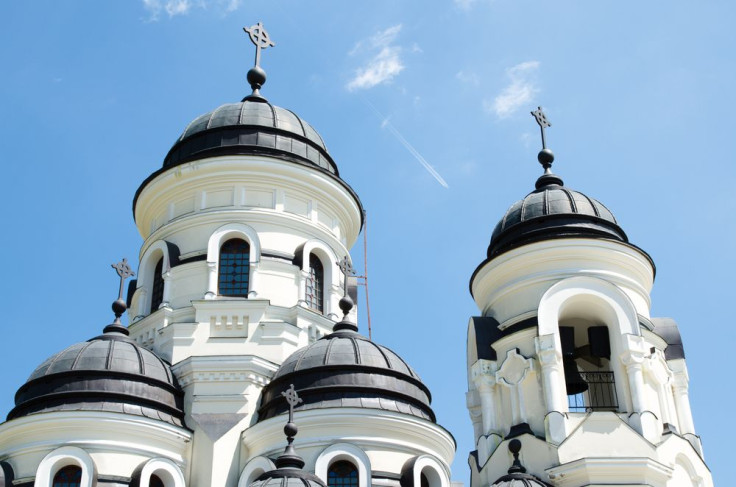To Russia With Fear: Ukraine’s Tiny, Impoverished Neighbor Moldova Also Worries About Moscow's Incursions

Moldova, a small nation to the southwest of Ukraine, fears that Russia’s intervention in the autonomous province of Crimea could be repeated in other parts of the region. Iurie Leanca, the prime minister of Moldova, an impoverished nation of about 3.6 million people and a former republic of the Soviet Union, called Vladimir Putin’s incursion into Crimea a “very dangerous development” in an interview with Bloomberg in New York.
Leanca suggested that the slow progress of integrating with the European Union has made both Ukraine and Moldova more vulnerable to Russian interference in their affairs, placing their territorial sovereignty at great risk. “It’s indeed very contagious,” added the leader of one of the smallest economies in Europe, which, like Ukraine, depends heavily on natural gas from Russia. Russia also opposes Moldova’s efforts to gravitate toward the EU and away from Moscow. Leanca, who has been in power for a little less than a year, declared that he is “very anxious” about the situation in Crimea and asked President Barack Obama to provide “strong U.S. leadership” on the issue in tandem with the EU.
“We are in a very difficult situation,” Leanca told Bloomberg. “We need a common vision that should be shared by Washington, Paris, Berlin and some other European states. Otherwise is very difficult to keep this objective [of European integration] alive.”
As thousands of Russian troops currently occupy Crimea, Moldova has long faced its own secessionist threat in its autonomous Transnistria region, which broke away in 1992 after a brief war and also boasts a Russian military contingent – meaning the region is under de facto control of Moscow. With respect to the Transnistria issue, Leanca called on the U.S. and E.U. to exhibit “a strong involvement … because we can’t address it on our own.”
Earlier this week, Leanca received a pledge from U.S. Secretary of State John Kerry for an additional $2.8 million in economic development aid for Moldova. The U.S. has donated more than $1 billion in aid to the nation since its independence in the early 1990s. Radio Free Europe/Radio Liberty reported that Kerry reassured Leanca of Washington’s continued support of Moldova in its quest to develop a pro-European policy, adding that the prime minister is "leading a transformation" in his country.
Citing a report from Steven Woehrel of the non-partisan Congressional Research Service in Washington, Bloomberg noted that Moldova is a largely agricultural economy, as fruit, wine and tobacco account for half of exports and one-third of the workforce. But Russia has placed pressure on the Moldovan economy by boycotting its wine and agricultural exports and also by imposing repressive measures upon Moldovan migrant workers toiling in Russia, Al Jazeera noted. Worse of all, Russia has made threats to cut off its natural gas supply to Moldova. "I regret to say Russia, in some of the challenges that we are seeing right now in Ukraine, has put pressure on Moldova. There are challenges with respect to their energy sources and also their ability to trade," Kerry told reporters.
Leanca responded at the meeting with Kerry that "there are some very negative developments unfolding. Therefore our determination to have a very active security cooperation and dialogue [with the United States] is there.” Consequently, Leanca is more determined than even to do business with Europe and eventually hopes to join the EU. Indeed, it is expected that Moldova will sign an association agreement with the EU later this year, possibly paving the way for ultimate integration.
Moldova has significant communities of Russians and Ukrainians – according to the CIA/World Factbook, these two ethnic groups account for about 8 and 6 percent, respectively, of the small country’s total population. Moldova is also financially dependent on remittances sent by some 1 million Moldovan workers in Russia, Europe and other former Soviet Bloc nations.
But what Moldova lacks and desperately needs to keep its economy afloat – energy – now comes from Russia. In the event Moscow cuts off gas supplies, Moldova’s fragile economy could collapse. Moldova is also heavily indebted to Russia. Late last summer, Moldova and Romania (its neighbor to the west), commenced construction of a gas pipeline, designed to reduce Moldova’s dependence upon Russia.
The CIA noted that the Moldovan government's goal of EU integration “has resulted in some market-oriented progress and the granting of EU trade preferences has encouraged higher growth rates,” but added that Moldova's economic future remains “vulnerable to political uncertainty, weak administrative capacity, vested bureaucratic interests, corruption, higher fuel prices, and the concerns of foreign investors, as well as the presence of an illegal separatist regime in Moldova's Transnistria region.”
--
(Note: Moldova Orthodox Church photo by Shutterstock.com.)
© Copyright IBTimes 2024. All rights reserved.





















